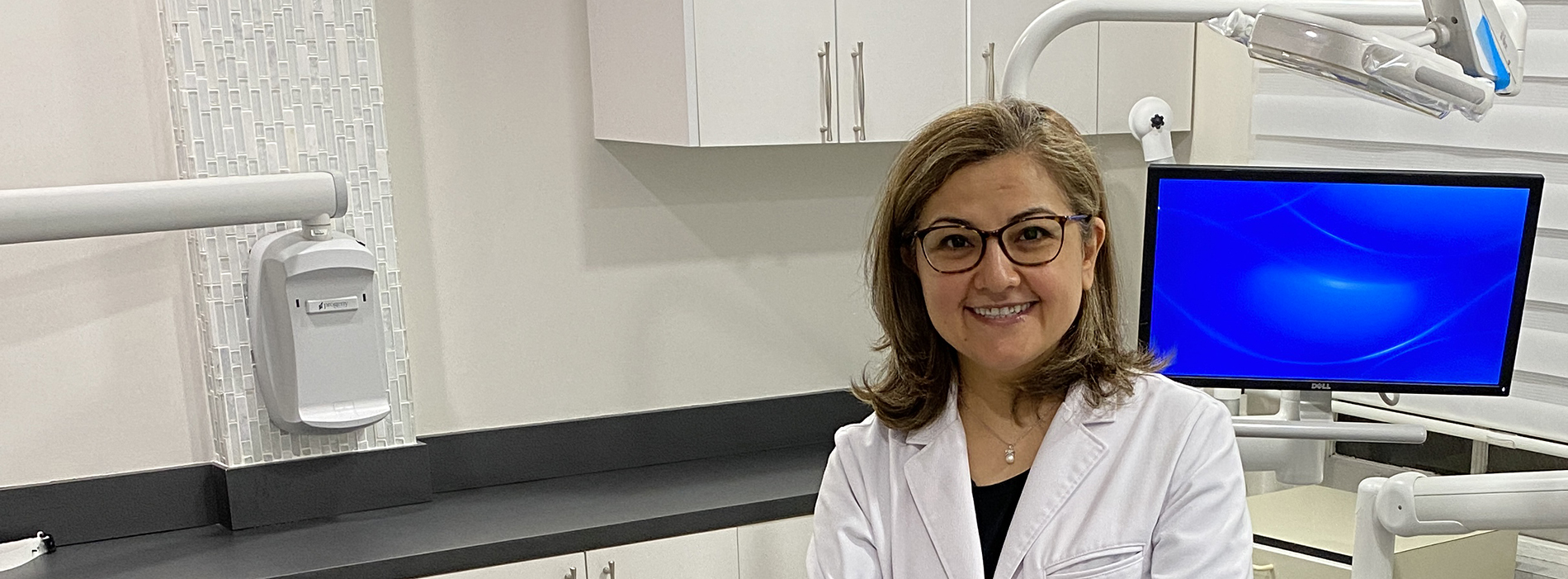
Having a missing tooth can cause a lot more problems than leaving a gap in your gums. Here are some issues that can be caused by a missing tooth:
There are many causes of missing teeth. Untreated tooth decay can lead to the tooth dying, becoming loose, and falling out. Bacterial infections caused by tooth decay cause a loosening of the gums around your teeth, and the teeth become loose and eventually fall out if the decay is not treated in time.
A dental implant consists of a titanium post and a ceramic crown on top. The post is inserted into the empty socket and extends into the jaw to become the root of the faux tooth. The crown on top mimics a natural tooth to support the surrounding teeth and provide adequate bite pressure and position.
Dental implants can be done in the office and takes less than an hour for every tooth implanted. If you only need one tooth replaced, then the procedure will be very quick. However, if you have more than one missing tooth, it may take several visits to get all the implants done.
Your Midtown Manhattan dentist will evaluate the condition of your existing jawbone to ensure that there is enough bone for the implant to adhere to. If there is not, you may need to get a bone graft to support an implant, and that can take a couple of months to grow.
When the dentist decides you’re ready for the implant, the procedure will be scheduled, and you may receive a temporary crown to wear while your jawbone fuses to the titanium post, a process that can take anywhere from six to twelve weeks.
Once the bone has properly fused to the post, the dentist will attach your custom-made permanent crown. Your gums and jawbone will require another few weeks to heal.
The dentist will tell you when your jawbone has healed, and then you can begin treating the implant like a normal tooth. You will then be able to eat normal foods and brush the crown like a real tooth.
Dental implants are sturdy and supportive and can last anywhere from fifteen to twenty-five years with proper care. They are meant to be a permanent solution to tooth loss.
A titanium post fuses with the bone to create an anchor for the “tooth,” similar to a natural tooth root. The posts are pretty much indestructible, but you may need to replace the crown if it gets worn or cracked with chewing over time.
Here are some of the benefits of a dental implant:
The first benefit is that dental implants restore the natural appearance and function of normal teeth. Tooth replacements create a strong, bonded anchor for a beautiful smile with full functionality when it comes to eating and caring for the tooth.
With Midtown Manhattan implant dentistry, patients with missing teeth no longer need to suffer embarrassment or be unable to enjoy the simple things, such as eating their favorite foods. Bridges, crowns, and dentures all restore the appearance and function of permanently placed teeth. Dental implants look, feel, and function just like your real teeth.
If you don’t like to smile because you are missing one or more teeth, then dental implants are the answer to your problem.
While the cost of an implant is similar to the cost of a dental bridge, there are many advantages to implants that you don’t get with a bridge.
First, a dental implant is easier to keep clean and in good condition than a bridge. Gums can recede around a bridge, leaving a visible defect when the metal base of the bridge becomes exposed. Second, a bridge can cause bone degradation or weakening, leading to bone loss in the jaw. Also, with a bridge, you sometimes have to cut down the nearby teeth for crowns, causing damage to otherwise healthy teeth and making them more susceptible to caries. Finally, dental implants integrate with your jawbone and do not cause it to deteriorate. The lifetime of an implant is longer than a bridge.
Dentures are usually a semi-permanent solution for missing teeth, but they are not ideal for everyone because they come out and require fitting or adhesive to remain in place. Plus dentures press on the jaw, causing it to lose bone and shrink. The shrinkage affects the appearance of the face making it look older. However, dentures can now be a permanent solution with an implant-supported denture, also known as an overdenture.
Missing teeth contribute to gum shrinkage and bone loss, making traditional dentures almost impossible. Dental implants can prevent bone loss and gum shrinkage by mimicking the roots of natural teeth. With the support of the implants and regular biting and chewing, there is no deterioration of the jawbone.
Implant-supported dentures are anchored and stable and do not require the use of adhesives to remain in place. Dental implants can withstand 450 pounds per square inch of biting pressure—that is equal to the amount of pressure your normal teeth handle when biting and chewing food.
Some dental appliances can also damage healthy teeth by rubbing or wearing away the outer enamel of the tooth. Speech is improved as well because the teeth are there to maintain a structure for the tongue. When the tongue falls into a hole from a missing tooth, the sound can be distorted or create a lisp, thereby affecting the way you speak and your ability to pronounce words correctly.
Finally, A full upper denture reduces your ability to taste food properly because it covers the palate. With dental implants, the false palate is removed from the upper denture so that you can taste and enjoy food normally.





New York Total Dental offers cosmetic dentistry and general dentistry services including full mouth rehabilitation, Invisalign, dental implants, orthodontics, veneers, periodontics gum treatment, teeth whitening, crowns and bridges, teeth fillings, and dental cleaning to Midtown Manhattan, Upper Manhattan, Lower Manhattan, and Downtown Manhattan in New York City.